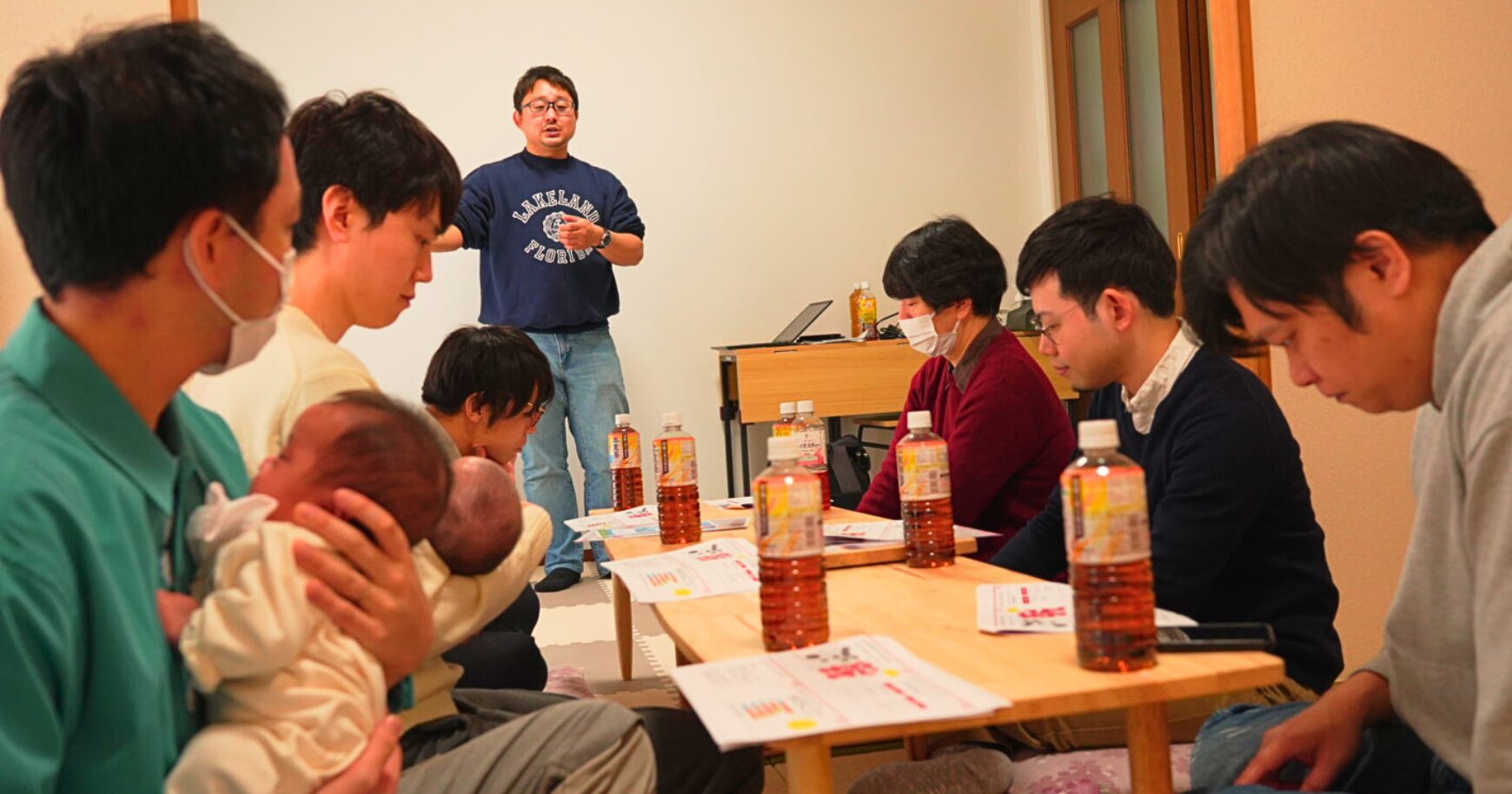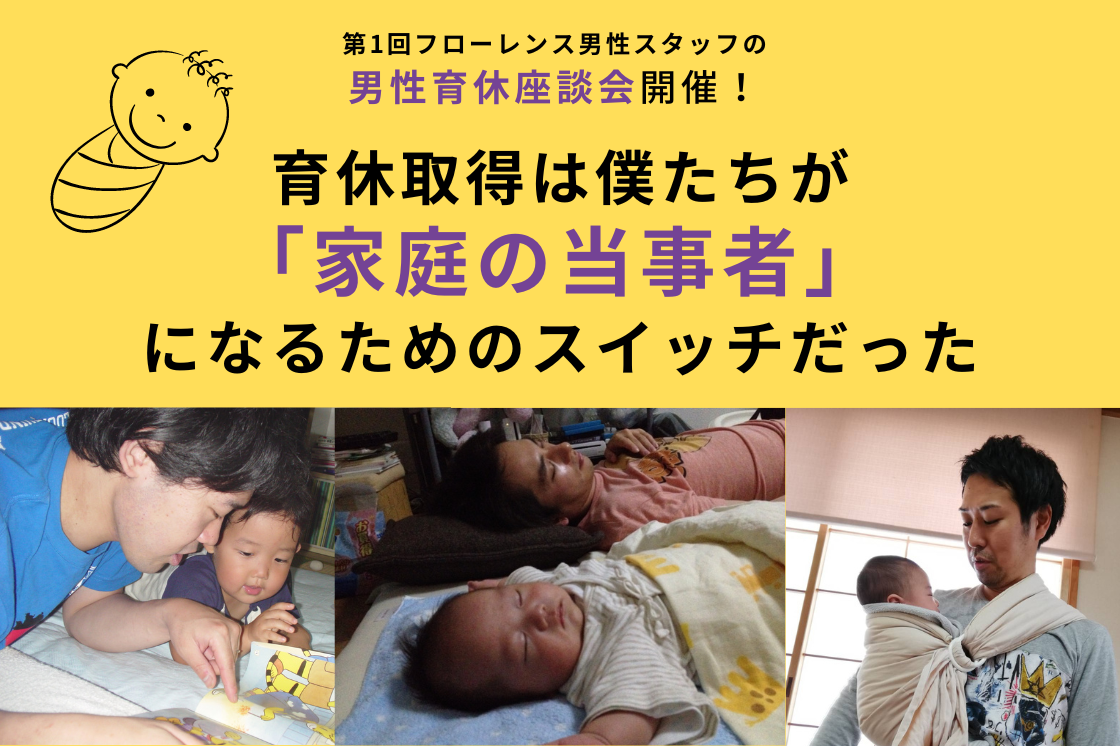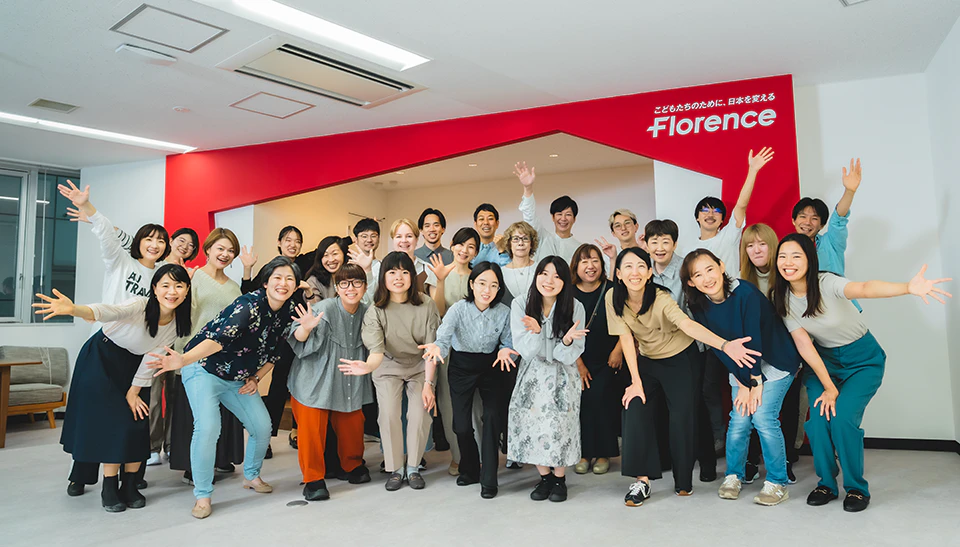Komazaki, the Representative Director of Florence has been advocating for a policy of parental leave system for men and mandating men’s parental leave for the last four years with like-minded members. These efforts have finally come to fruition and a revision to parental/carer’s leave legislation was made on 3 June this year. This outcome will enable men to take up parental leave more easily.
BHP, one of the largest global resources companies, through its Japan office, has recognised Florence’ work to help parents and children who are heavily impact by the COVID-19 pandemic, in particular, impacted vulnerable groups such low income or single parent families. They recognise that the work we do to improves ways of working and promotes diversity and inclusion. BHP has made a donation towards our work.
BHP recognises the value of a more inclusive and diverse workforce and has an aspirational goal to reach gender balance by 2025.
This article summarises the conversation between BHP’s Japan Country President, Yuki Ghantous and Florence’s Komazaki on diversity and inclusion (*), a topic that is starting to be recognised as a key enabler for men’s participation in home duties, advancement of females and a key human resource strategy.
*Diversity and Inclusion: an approach to recognise and embrace the diversity such as gender, age, nationality, lifestyle and value to bring out the best of everything.

FLEXIBLE WORKING IS AN ESSENTIAL ENABLER TO REACH GENDER BALANCE
Yuki Ghantous:
BHP is a leading resources company headquartered in Australia that extracts, processes and market minerals such as iron ore.
BHP’s purpose is to bring people and resources together to build a better world. True to our purpose, we are committed to providing a safe, inclusive and diverse workplace. To ensure objective measurement of our progress, in 2016 we set an aspirational goal to achieve gender balance across BHP by 2025.
However, we realise this is a very challenging target. Mining has been a male dominated industry and out of our 80,000 employees globally, we only had 17.6% of female employees in 2016.
Komazaki:
It is indeed an ambitious target to lift the female employee percentage from the upper end of 10 percentile to 50% in 10 years. What is BHP doing to achieve this target?
Yuki Ghantous:
There are various priorities that we are promoting but the most critical priority is flexible working. As various life events such as starting a family can impact on career plans, particularly for women, it is important for employers to create an environment that supports employees’ work life balance. This is not just about flexible work hours such as “start late or finish early”. What we consider flexible working is much deeper than just working hours as it requires a system where the individual can still bring out their full potential in what they do at work even under the flexible working arrangement. In fact, we consider flexible working is not just for a special case and we are embedding flexibility in the way we all work.
SINGLE MOTHER FAMILY CANNOT MAINTAIN THEIR LIVING
Yuki Ghantous:
Flexible working is one of the reason why Florence’s activities have resonated with us. When a child becomes sick, it is often their mother who takes time off work to look after the child. If they can access child care for sick children, their mothers can continue working with such support. As companies promote flexible working, parents can take their sick children to childcare or to hospital without worrying about their career. By creating a synergy between companies and social services such as what Florence is providing, we feel can create a better workplace.
Komazaki:
There is still a strong bias that mothers need to look after their children when they are sick. The root cause of this bias is a view that each gender has different role to play. This bias is reflected in the result of the Gender gap index in 2021 where Japan was ranked at 120th out of 156 countries. This gender gap index quantifies the gaps between women and men in four key areas: economy, politics, education and health. (For Japan), there are wide gaps in economy and politics. As average wage of female workers is only 60% of their male counterparts, women tend to have hard time to earn enough money to maintain their living costs if they become a sole income earner of their family through divorce. According to OECD research, relative poverty rate of single-working parent families (in Japan) is more than 50%. This means many single mother families are living in the relative poverty (in Japan).
At the same time, this situation is tough for men as well. As the average wage of men is higher than females, even if more men are hoping to prioritise their family in recent years, they feel obliged to focus on their career to earn enough income.
“LEAN OUT” – THE WAY MEN CAN REFLECT THEIR LIFE PRIORITIES
Yuki Ghantous:
As we talked about the way of working for men, let me introduce an example that BHP is doing to support our male employees. There are many employee resource groups within BHP. One of them is a diversity and inclusion network at our Singapore office. They have introduced and rolled out a series of “Lean Out” events last year.
You may recall a book called ‘Lean In’ by Facebook’s COO, Sheryl Sandberg. The book is about women to come forward and take control of their careers. ‘Lean Out’ implies a message to ‘men to lean out of their work centric lifestyle, prioritise their family needs to give women more space to grow’. One of the Lean out events in Singapore involved a professional psychologist advising men on how to manage difficult lean out conversations at home to be able to have effective conversations around role they play at home and in their career.
Komazaki:
That’s amazing concept!
Yuki Ghantous:
I mentioned that flexible working is a critical enabler to reach gender equality of our workforce, however it is not enough. We will need to work on our bias and behaviour around this. Key challenge in this space is ‘unconscious bias’. The reason why someone don’t take parental leave even if they have access to it is based on a bias that ‘taking parental leave takes them out of their career path’.
In this Singapore ‘Lean out’ event example, the employee group hosted a ‘fireside chat for fathers’ where our male employees spoke openly about their work-life balance.
During the fireside chat, our male employees could talk about their concerns in managing life balance and share their parental leave experience to understand the benefit of taking parental leave and address the myth of parental leave, that is impacts on their career. It also aims to promote a role model as people can see male leaders are very active in playing parenting role. If you see well respected leaders take parental leave, it makes you think that it is ok for you to do the same. At BHP, both men and women are proactive in taking parental leave.
CHANGE THE PROCESS FIRST, THEN PEOPLE’S VIEW WILL CHANGE
Komazaki:
I feel corporates can play a big role in transforming the view of gender role expectations. I am impressed about the various work that BHP has been progressing. However, not all companies are like BHP, so we feel there are some cases where gender equality needs to be ‘forced’ upon us.
I am a lead of ‘Ikumen’ (men who participate in parenting) project that is run by the Department of Health and Welfare. I have created the work ‘Ikumen’ to transform men’s view on parenting. As the result, while people become more aware about ‘Ikumen’, only 7% of males are taking parental leave at this stage.
Yuki Ghantous:
Ideally, we want men to want to take parental leave. For BHP, it will be better if we can organically reach gender equality, however, if we wait for that to happen, it may take 10, 20 or 30 years for people’s perception to change and it may still not change after that. You are working to realise mandatory parental leave for men. I think it is very significant to create such a system (in Japan).
Komazaki:
Florence has also been promoting for men to play more roles at home but it is very difficult to change people’s views, so we thought “we just need to change the law” and advocate for the policy change. I feel the change in the policy could be a trigger for social change.
In addition to providing food to single parent or low income families, Florence has been active in such social actions to create a system that leads to more male participation at home and female participation at work in the long term.
WE WOULD LIKE TO CONTRIBUTE TO JAPAN WHERE OUR CUSTOMERS AND STAKEHOLDERS ARE BASED
Komazaki:
However, such social actions don’t bring profit but we need resources and fund to progress work. Our activities are supported by donations by people who support what we do, like BHP. Last but not least, may I ask why you made the decision to donate to Florence?
Yuki Ghantous:
With the significant challenges BHP’s communities, operating countries and customer markets are facing from the direct and indirect effect of COVID-19, we felt support from BHP is more important than ever. As the recovery phase from COVID 19 will require close collaboration with the private sector in addition to comprehensive and coordinated government policy response, we have established the Partnership for Resilience in Asia Fund to contribute to relief and recovery efforts in Asia, where our employees and customers are based and to sustain impacted vulnerable groups across our Asia footprint.
Japan is our long term partner for us. We have learnt that many parents and children were impact by COVID-19 and also learnt about Florence’s work to support them.
Social investment is one of the tools in our overall approach to contributing to the creation of social value. The primary purpose is to contribute to the resilience of the environment and the communities of which we are a part, and, it is aligned with our broader business priorities. We saw strong synergies in what Florence does in our social value concept. While there are difference between NPO and for profit companies, the purpose is the same. We want to see the positive effect when our social value and social investment are combined with social actions.
Komazaki:
Thank you. I agree that parents in Japan have been heavily impacted by COVID-19. According to the report on domestic violence in 2020, domestic violence has increased by 1.6 times compared to the same time last year. The suicide rate of women and children is on increase as well.
One of Florence’s activities is called “Food delivery for children” where we deliver groceries to low income families on a regular basis. We are receiving calls from those in need almost every day. Once of them told me that she is a single parent with two children and they only have one piece of bread a day to eat and they are not sure if they can tolerate it any further. I was shocked to learn that there are people who are facing such a situation in an advanced country like Japan.
We have then set up a *COVID-19 emergency support project* last year and are providing support to 12,000 low income or single parent families. Florence will continue to support vulnerable groups and work to transform the system that creates such vulnerable groups. Thank you.
Yuki Ghantous:
We are pleased to hear that our donation is used to support Florence to make the world better place. Thank you.
![【英語版】Finally, (Japan to adapt) mandatory parental leave for men is here. How can we create a society where everyone can work to reach their full potential regardless of their gender? [Conversation between Yuki Ghantous, BHP Japan and Mr Komazaki]](https://florence.or.jp/wp/wp-content/uploads/2021/08/image1-2.jpg)





